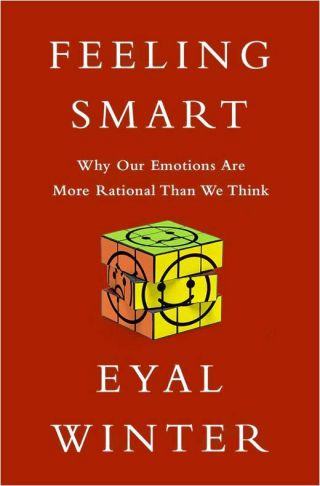Behavioral Economics
Why Our Emotions Are More Rational Than We Think
The interface between rationality and emotions
Posted February 9, 2015

Many of us tend to think of decision making as a process in which two separate and opposite mechanisms are engaged in a critical struggle. The emotional and impulsive mechanism within us temp us to choose the “wrong” thing, while the rational and intellectual mechanism that we also carry inside us slowly and ploddingly promises to lead us eventually to make the right choice. This description, which was also shared by many scientists until a few decades ago, is both simplistic and wrong.
Our emotional and intellectual mechanisms work together and sustain each other. Sometimes they cannot be separated at all. In many cases, a decision based on emotion or intuition may be much more efficient—and indeed better—than a decision arrived at after thorough and rigorous analysis of all the possible outcomes and implications. A study conducted at the University of California at Santa Barbara indicates that in situations in which we are moderately angry our ability to distinguish between relevant and irrelevant claims in disputed issues is sharpened. Another study that I coauthored reveals that our inclination to become angered grows in situations in which we can benefit from anger. In other words, there is logic in emotion and often emotion in logic.
How do emotions influence our decision making? Do they hinder us or help us? What is their role in social situations? How are collective emotions formed? What are the evolutionary mechanisms that made us both thinking and emotional creatures? My new book Feeling Smart: Why Our Emotions Are More Rational Than We Think attempts to answer these questions. It uses insights from the latest research studies published in recent years “on the seam” between emotions and rationality. Our abiity to integrate rationality and emotions applies not only for economic decisions but also to a much larger domain of environments, including politics, religion, family, sexuality, and art—some of which I intend to discuss in this blog.
The new insights that have been obtained about the role of emotions are an outcome of a quiet revolution that has occurred over the past two decades in three important research disciplines: brain sciences, behavioral economics, and game theory. These three together have in recent years expanded our understanding of all aspects related to human behavior. If in the past emotions were studied mainly in psychology, sociology, and philosophy while rationality was the preserve of economics and game theory, today both the study of rationality and the study of emotions are active research subjects for scholars in all those fields.
Game theory and behavioral economics, the academic fields in which I specialize, are rapidly expanding subjects within economics. Over the past two decades, 12 Nobel Prizes in economics were awarded to researchers in those two fields. Their influence is felt well beyond the gates of academia.
Although my blog is not based on one and only one school of thought, I do have a personal and consistent message that I'd like to stress. This message can be summarized using the apparently paradoxical combination of words: “rational emotions.” Research in behavioral economics and the popular literature that it has spawned, including books composed by my friends Dan Ariely and Daniel Kahneman, tends to concentrate on mental deviations that lead us away from rational decision making and in some cases can harm us. In my opinion, this is an overly pessimistic position. In contrast, I am trying to point out how emotions serve us and further our interests, including our most material and immediate interests.
It is impossible to conduct a discussion on this subject without making use of two important research fields: game theory and the theory of evolution.
Game theory, which is essentially the study of interactive decisions, is necessary because humans are social creatures who interact with their environments. The game theoretic approach enables us to understand the roles that emotions and other behavioral characteristics have within a context of social interaction. Without it, we would be exposed to only “one side of the coin,” and we would have only a partial understanding of our own behaviors.
The theory of evolution is also vital for understanding human behavior. An evolutionary claim is intended to explain how a behavioral characteristic helps (or has in the past helped) human species to survive. Like physical developments in humans and other living creatures, human behavioral developments are the results of a “package deal”: a behavioral characteristic or inclination that appears to be an obstacle in one decision context is in many cases an important advantage in other decision contexts.
My use of the term “emotions” throughout the discussions in this blog is broader than the meaning attached to that word in common speech. I include emotions, such as anger and worry, which are regarded by everyone as emotions, but also concepts that are typically thought of as social norms, such as fairness, equality, and magnanimity. This is not an attempt to define what is an emotion (something that I will deliberately avoid doing here) but instead comes from a desire to discuss an extensive range of phenomena that impact what might otherwise be perfectly rational thinking.
Feel Smart,
Eyal


